Heart Blood Deficiency
The information provided here is not a replacement for a doctor. You shouldn't use it for the purpose of self-diagnosing or self-medicating but rather so you can have a more informed discussion with a professional TCM practitioner.
At a glance
Preliminary reading: What is a pattern? The Heart in Chinese Medicine The concept of Blood The concept of Deficiency
Key attributes
Chinese name: 心血虚 Pinyin name: Xīn Xuè Xū
Pattern nature: Empty
Pattern hierarchy: Specific pattern under Blood Deficiency
Common combinations: Spleen and Heart Blood Deficiency Liver and Heart Blood Deficiency Heart Blood Deficiency with Liver Qi Stagnation
Causes
Precursor patterns: Liver Blood Deficiency Spleen Qi Deficiency Spleen and Liver Blood Deficiency and one other possible precursors
Common causes: 1. Diet, 2. Emotional stress, 3. Loss of Blood
Diagnosis
Common symptoms: Easily scared Excessive dreams
Pulse type(s): Choppy (Se), Fine (Xi)
Tongue description: Pale thin and slightly dry tongue
Treatment
Treatment principle: Nourish Blood, tonify the Heart, calm the Mind.
Common formulas: Si Wu Tang Gui Pi Tang Shen Qi Si Wu Tang and four other formulas
Pathology
This pattern is manifested by a pale face, pale lips and a pale tongue due to lack of Blood supply. Heart Blood Deficiency may eventually cause Heart Yin Deficiency because Blood is a Yin element. Dizziness is also a symptom because not sufficient Blood is able to nourish the Brain.
Heart Blood Deficiency hurts the Mind (神 Shen) which resides in the Heart. Therefore, it causes symptoms such as insomnia, dream-disturbed sleep, anxiety, poor memory and tendency to be scared.
Another typical symptom is palpitation due to Heart Qi Deficiency which is a result of Heart Blood Deficiency. Blood is the mother of Qi. It often happens in the evening and at rest, often with a feeling of anxiety or uneasiness in the chest.
Causes
Precursor patterns: Heart Blood Deficiency can derive from Liver Blood Deficiency Spleen Qi Deficiency Spleen and Liver Blood Deficiency Lung and Heart Qi Deficiency
Diet: A diet that is not rich in nourishment or in Blood-producing foods such as red meat, can give rise to Spleen Qi Deficiency and it causes Heart Blood Deficiency eventually. It is because the Food Qi (Gu Qi) produced by the Spleen is the origin of Blood, a poor diet over a long period of time can cause general body Blood Deficiency, especially in the Heart.
Emotional stress: Long-term anxiety, sadness, grief and worry disturb the Mind and suppress the Heart function of governing Blood.
Loss of Blood: A serious loss of blood such as hemorrhaging during childbirth can give rise to general Blood Deficiency. It develops to Heart Blood Deficiency eventually as the Heart governs Blood.
Diagnosing Heart Blood Deficiency
Diagnosing a pattern in Chinese Medicine is no easy feat and should be left to professional practitioners. In particular one has to know how to differentiate between different types of pulses and tongue coatings, shapes and colors as well as learn to read from a long list of seemingly unrelated symptoms.
Pulse type(s): Choppy (Se) or fine (Xi)
Tongue description: Pale thin and slightly dry tongue
Main symptoms: Easily scared Excessive dreams
Diagnosis commentary: Key characteristic symptoms of this pattern are the palpitations, insomnia, poor memory and pale tongue.
Treating Heart Blood Deficiency
Treatment principle
Nourish Blood, tonify the Heart, calm the Mind.
Herbal formulas used to treat Heart Blood Deficiency
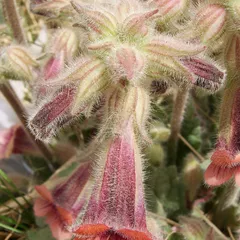
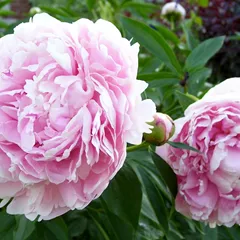
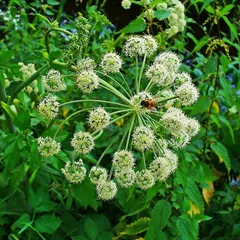
The top herbs in Si Wu Tang are Prepared Rehmannia (Shu Di huang), White Peony Roots (Bai Shao) and Dong Quai (Dang Gui)
Si Wu Tang
Source date: 846 AD
Number of ingredients: 4 herbs
Key actions: Restores and nourishes Blood. Stimulates Blood circulation.
Formula summary
Si Wu Tang is a 4-ingredient Chinese Medicine formula. Invented in 846 AD, it belongs to the category of formulas that tonify Blood.
Besides Heart Blood Deficiency, Si Wu Tang is also used to treat Blood Deficiency or Blood Stagnation.


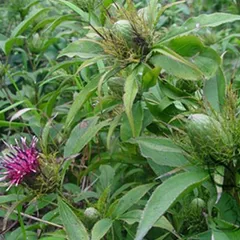
The top herbs in Gui Pi Tang are Ginseng (Ren Shen), Milkvetch Roots (Huang Qi) and Atractylodes Rhizomes (Bai Zhu)
Gui Pi Tang
Source date: 1529 AD
Number of ingredients: 12 herbs
Key actions: Tonifies and nourish Qi and Blood. Tonifies Heart and Spleen.
Formula summary
Gui Pi Tang is a 12-ingredient Chinese Medicine formula. Invented in 1529 AD, it belongs to the category of formulas that tonify Qi and Blood.
Besides Heart Blood Deficiency, Gui Pi Tang is also used to treat Qi Deficiency or Blood Deficiency.
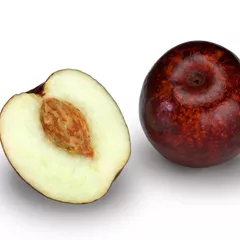

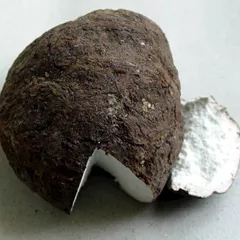
The top herbs in Suan Zao Ren Tang are Jujube Seeds (Suan Zao Ren), Szechuan Lovage Roots (Chuan Xiong) and Poria-Cocos Mushrooms (Fu Ling)
Suan Zao Ren Tang
Source date: 220 AD
Number of ingredients: 5 herbs
Key actions: Nourishes the Blood. Calms the Mind and eliminates irritability . Clears Heat.
Formula summary
Suan Zao Ren Tang is a 5-ingredient Chinese Medicine formula. Invented in 220 AD, it belongs to the category of formulas that nourish the Heart and calm the Mind.
Besides Heart Blood Deficiency, Suan Zao Ren Tang is also used to treat Liver Blood Deficiency or Empty-Heat or Fire caused by Yin Deficiency.



The top herbs in Shen Qi Si Wu Tang are Prepared Rehmannia (Shu Di huang), White Peony Roots (Bai Shao) and Dong Quai (Dang Gui)
Shen Qi Si Wu Tang
Source date: 846 AD
Number of ingredients: 6 herbs
Key actions: Restores and nourishes Blood. Stimulates Blood circulation. Tonifies Qi.
Formula summary
Shen Qi Si Wu Tang is a 6-ingredient Chinese Medicine formula. Invented in 846 AD, it belongs to the category of formulas that tonify Blood.
Besides Heart Blood Deficiency, Shen Qi Si Wu Tang is also used to treat Pericardium Blood Deficiency.
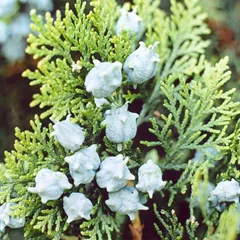


The top herbs in Bai Zi Yang Xin Wan are Biota Seeds (Bai Zi Ren), Milkvetch Roots (Huang Qi) and Dwarf Lilyturf Roots (Mai Dong)
Bai Zi Yang Xin Wan
Source date: 16th century
Number of ingredients: 12 herbs
Key actions: Tonifies the Heart Qi . Calms the Mind and clear anxiety . Nourish the Heart Blood .
Formula summary
Bai Zi Yang Xin Wan is a 12-ingredient Chinese Medicine formula. Invented in 16th century, it belongs to the category of formulas that nourish the Heart and calm the Mind.
Besides Heart Blood Deficiency, Bai Zi Yang Xin Wan is also used to treat Heart Qi Deficiency.

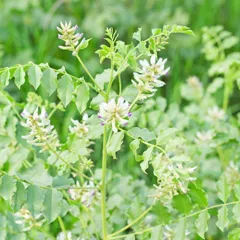
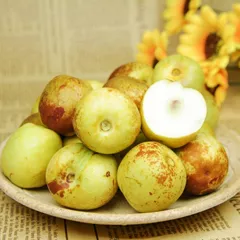
The top herbs in Gan Mai Da Zao Tang are Light Wheats (Fu Xiao Mai), Liquorice (Gan Cao) and Jujube Dates (Da Zao)
Gan Mai Da Zao Tang
Source date: 220 AD
Number of ingredients: 3 herbs
Key actions: Nourishes the Heart. Calms the Mind. Harmonizes the middle burner. Relaxes hypertonicity.
Formula summary
Gan Mai Da Zao Tang is a 3-ingredient Chinese Medicine formula. Invented in 220 AD, it belongs to the category of formulas that nourish the Heart and calm the Mind.
Besides Heart Blood Deficiency, Gan Mai Da Zao Tang is also used to treat Heart Blood Deficiency with Liver Qi Stagnation.
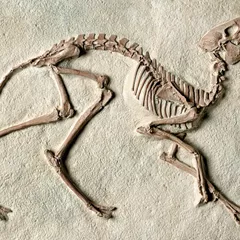
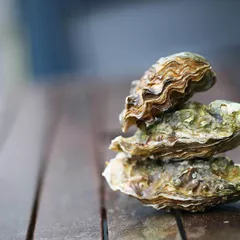
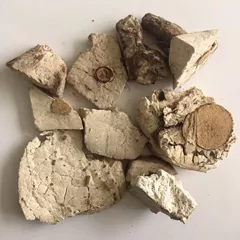
The top herbs in Zhen Xin An Shen Tang are Dragon Bones (Long Gu), Oyster Shells (Mu Li ke) and Host-Wood Poria (Fu Shen)
Zhen Xin An Shen Tang
Source date: 1985 AD
Number of ingredients: 7 herbs
Key actions: Anchors the Heart and calms the Mind.
Formula summary
Zhen Xin An Shen Tang is a 7-ingredient Chinese Medicine formula. Invented in 1985 AD, it belongs to the category of formulas that nourish the Heart and calm the Mind.
Besides Heart Blood Deficiency, Zhen Xin An Shen Tang is also used to treat Liver Yang Rising.
Diet recommendations
Eat a balanced diet including lamb, Dang Gui and ginger soup, bone marrow soup, milk, black and adzuki beans, congee. Eat only cooked foods; do not skip meals.
As for sports, do light aerobic or stretching exercises such as Yoga, Tai Chi and Qi Gong.
As for other therapies, try moxibustion over the lower abdomen, meditation and breathing exercises.
Special highlight: the link between postpartum depression and Heart Blood Deficiency

Ginseng (Ren Shen) is the key herb for Gui Pi Tang, a formula used for postpartum depression caused by Heart Blood Deficiency
Typical symptoms for postpartum depression caused by Heart Blood Deficiency: Fatigue Anxiety Insomnia Tearfulness Poor memory Palpitations Loss of libido Feeling of guilt
Recommended herbal formula: Gui Pi Tang
The most common reason for a new mother to contract Blood Deficiency is when she experienced a large blood-loss during childbirth. That being said, some women have pre-existing Blood Deficiency which can worsen postpartum even though they didn't lose a large amount of blood when giving birth.
The Heart is the most affected Organ by a general Blood Deficiency because it governs the Blood. The Mind, which is housed in the Heart, gets weakened and lose stability as a consequence of Heart Blood...Read more about postpartum depression
Consequence patterns
Pericardium Blood Deficiency is an obvious consequence of the mentioned pattern.
The Heart is the place where the Grain Qi (Food Qi) from the Spleen is transformed into Blood. When the Heart Blood is lacking, there is likely a general body Blood Deficiency.
Blood is a Yin element. Therefore, prolonged Heart Blood Deficiency can eventually evolve to Heart Yin Deficiency.
From mental emotional point of view, Heart Blood Deficiency have influence over the Spleen. According to the Five Phases Theory, the Heart is the mother of the Spleen.
